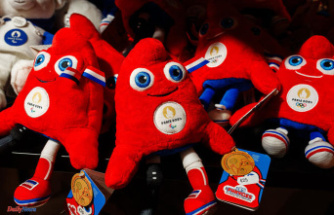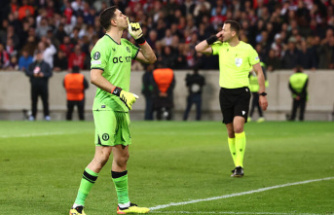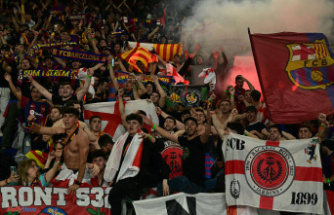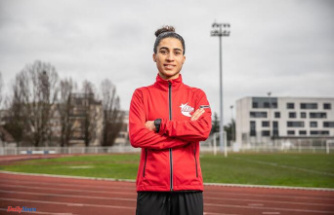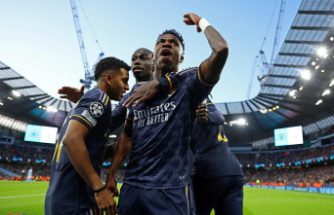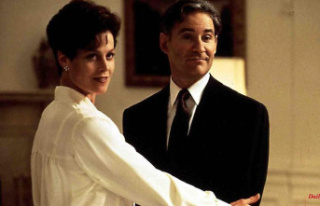On the 11th matchday of the Bundesliga there are discussions about penalties: In Leverkusen it would have been better if neither of them had been taken, in Mainz the Cologne team want to have seen an irregular execution. Meanwhile, the referee in Freiburg warns the wrong Bremen player.
Bayer 04 and the penalties, that's a topic that people in Leverkusen don't like to talk about at the moment. Before last Saturday's game against VfL Wolfsburg (2-2), the club had all awarded the last five penalties in all competitions - and at the same time had to accept a total of four in the last two competitive games against FC Porto and Eintracht Frankfurt . Both series continued, the first after eleven minutes when Moussa Diaby fired a hand penalty wide of the goal for the Werkself.
The penalty came after Diaby tried to play the ball in front of the goal from the right after a sprint in the visitors' penalty area. Wolfsburg's Micky van de Ven went for a tackle and extended his left leg, expecting the ball to be played flat and parallel to the goal line in front of his body and into the centre. However, Diaby put the ball back slightly, where it hit van de Ven's right hand. Referee Felix Brych immediately awarded a penalty, but was then sent to the fieldside monitor by video assistant Tobias Stieler.
After the on-field review, however, the referee stood by his decision and gestured that van de Ven had increased his body area by extending his arms. However, that was only true for the left arm, with which there was no contact with the ball. The right arm, on the other hand, was not far from the upper body and not in an unnatural position either, as the Wolfsburg native moved it to the ground for support when the ball came into contact. So there was a lot to be said for not classifying the handball as punishable and for revising the penalty decision, especially since van de Ven could not be accused of any intention.
The second Leverkusen series continued in the 53rd minute: After a duel between Leverkusen's Edmond Tapsoba and Felix Nmecha in the home team's penalty area, Felix Brych recognized a penalty for VfL. In real speed it actually looked as if Tapsoba had hit his opponent on the foot or as if Nmecha had fallen over Tapsoba's outstretched leg. But the replays showed that it was rather the Wolfsburg player who made the contact: he hit the Leverkusen player's foot with his outstretched leg.
In any case, an offense by Tapsoba could not be identified in the television pictures. Although the defender missed the ball, which his opponent had previously missed, Nmecha was also unsuccessful when trying to play it again with the "long" leg. Playing on would ultimately have been the best decision, there was no really valid argument for a penalty. But there was no further on-field review, the decision remained in place even after the review in Cologne. Maximilian Arnold converted the penalty kick to 1:2.
In the game between SC Freiburg and Werder Bremen (2-0), referee Bastian Dankert was right when he sent Marco Friedl off with a red card after just 14 minutes. The Bremen captain had a running duel with Michael Gregoritsch, in which both players initially held their opponent, but the Freiburger soon let go, while Friedl continued to try to stop Gregoritsch with his arm. When he finally went down around 25 meters from the visitors' goal, Dankert rated Friedl's effort as a foul and as a frustration of an obvious scoring chance. Rightly so, because Gregoritsch could have run into the penalty area and shot from a central position without the offense. Amos Pieper may have been too far away to significantly disrupt the conclusion.
Equally correct was the referee's decision to award the home side a penalty after 79 minutes after Felix Agu brought down his opponent Vincenzo Grifo with a combination of holding, kicking and tripping. Getting a yellow card was also correct - however the referee mistakenly showed it to the wrong player, not Agu but Lee Buchanan. A faux pas that could have been corrected if the VAR had intervened. He would have been entitled and obliged to do so, because mistaken identity in the event of a personal penalty is one of the reasons for intervention. But there was no hint from Florian Badstübner, apparently he hadn't noticed the mistake either. According to the "Kicker", Dankert noted the lapse later in the match report, which should result in Buchanan's warning being subsequently annulled.
In the game between 1. FSV Mainz 05 and 1. FC Köln (5-0), referee Matthias Jöllenbeck also awarded a penalty kick, just ten minutes after a duel in the Domstädter penalty area between Luca Kilian and Karim from Cologne Onisiwo. The Mainzer went down after his opponent hit him with his left leg on the back of the right thigh while running - a clumsy effort by Kilian that made the penalty whistle acceptable, although Onisiwo also seemed to have accepted the impulse willingly have to fall.
The yellow card, which the Cologne defender saw, was too mild a sanction from a technical point of view, if one assumes a foul play. Because the contact, which the referee rated as illegal, did not actually occur in a fight for the ball, as is the case when a defender just misses the ball when tackling and instead hits the opponent. In fact, Kilian had not attempted to reach the ball in this situation, and because this ball orientation was missing, a red card would have been appropriate. You may find that too harsh when the penalty decision is borderline, but it would have corresponded better to the rules. Just 18 minutes later, however, Kilian had to end his working day early anyway: After another foul against Onisiwo, he was rightly shown yellow-red.
Finally, there was irritation about the execution of the penalty. Because if I'm not mistaken, the shooter Marcus Ingvartsen only touched the ball minimally with his right foot when he parked it and then shot the ball with his left into the Cologne goal. In any case, a camera shot showed that the ball wobbled very slightly for a fraction of a second when you put your foot down. So was there an offense like in the DFB Cup round of 16 game between 1. FC Köln and Hamburger SV last season, when Cologne’s Florian Kainz shot himself on penalties and thus missed the decisive penalty?
The project manager for the video assistants, Jochen Drees, pointed out that there was no clear evidence of a comparable violation because the camera images were not clear and therefore did not prove a clear error. But even if you see it differently, the question arises as to whether the execution was actually against the rules. According to the rules, the ball is only in play "when it has been kicked and clearly moved". The barely perceptible, minimal wobble that caused the ball not to move at all does not meet this criterion. This means that Ingvartsen did not play the ball twice illegally. Unless the rule holders wanted the meaning and spirit of this rule to be evaluated differently in this specific case.


